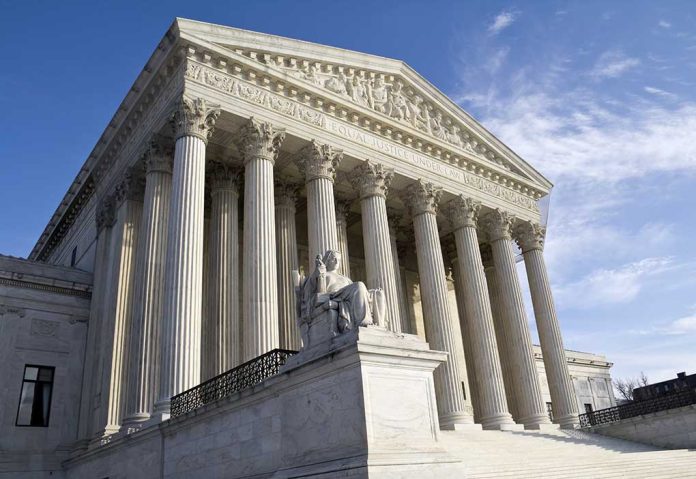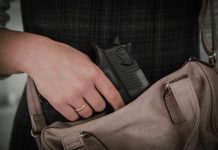
The Supreme Court recently opted not to review Hawaii’s strict handgun licensing law, sustaining the contentious legal framework.
At a Glance
- The Supreme Court declined a challenge to Hawaii’s gun licensing law.
- Some conservative justices suggest revisiting the case in future appeals.
- Hawaii’s legal stance highlights a state’s autonomy in regulating firearms.
- Conservative states are increasingly dropping licensing requirements.
Court’s Decision on Hawaii’s Law
The U.S. Supreme Court refused to hear a challenge against Hawaii’s restrictive gun licensing law, affirming the state’s regulation. This decision underscores the ongoing national debate on balancing state autonomy with constitutional rights. Justices Clarence Thomas and Samuel Alito showed interest in affirming Second Amendment rights but ultimately did not take up the case.
Conservative states have been moving away from strict gun licensing laws, yet Hawaii remains firm in its stance. Hawaii’s law necessitates licensing for public handgun carry, a rule that encountered opposition from Christopher L. Wilson. Wilson was charged with carrying a gun without a license on private property in 2017.
The Case of Christopher L. Wilson
Wilson contested the charges, asserting that his Second Amendment rights were breached. Initially, a state court dismissed the charges, citing a 2022 Supreme Court decision that expanded gun rights. However, Hawaii’s highest court reinstated the case, pinpointing disagreements with the 2022 decision’s historical basis requirement.
Notably, Justice Clarence Thomas stated the “correction of the Hawaii Supreme Court’s error must await another day.” This indicates the high court’s hesitancy to make a definitive ruling on the case, leaving space for future legal exploration.
Wilson’s Appeal and Future Implications
Although Wilson appealed to the U.S. Supreme Court, arguing that the state’s decisions contradicted higher court opinions, the case remained under state jurisdiction. Prosecutors maintained that state law aligned with constitutional rights. Hawaii has since revised its gun licensing system by removing an approval requirement, adjusting to previous legal criticisms.
The conservative justices’ comments about potentially revisiting the issue suggest a complex legal landscape. This development aligns with Justice Neil Gorsuch’s opinion that raises “serious questions.” Despite the Supreme Court’s decision, gun rights advocates remain vigilant, waiting for clarity that might emerge from the trial.
Sources:
- Supreme Court rejects appeal challenging Hawaii gun licensing requirements under Second Amendment
- SCOTUS Declines Hearing Appeal Challenging Hawaii Gun Licensing Law
- Supreme Court rejects appeal challenging Hawaii gun licensing requirements under Second Amendment







